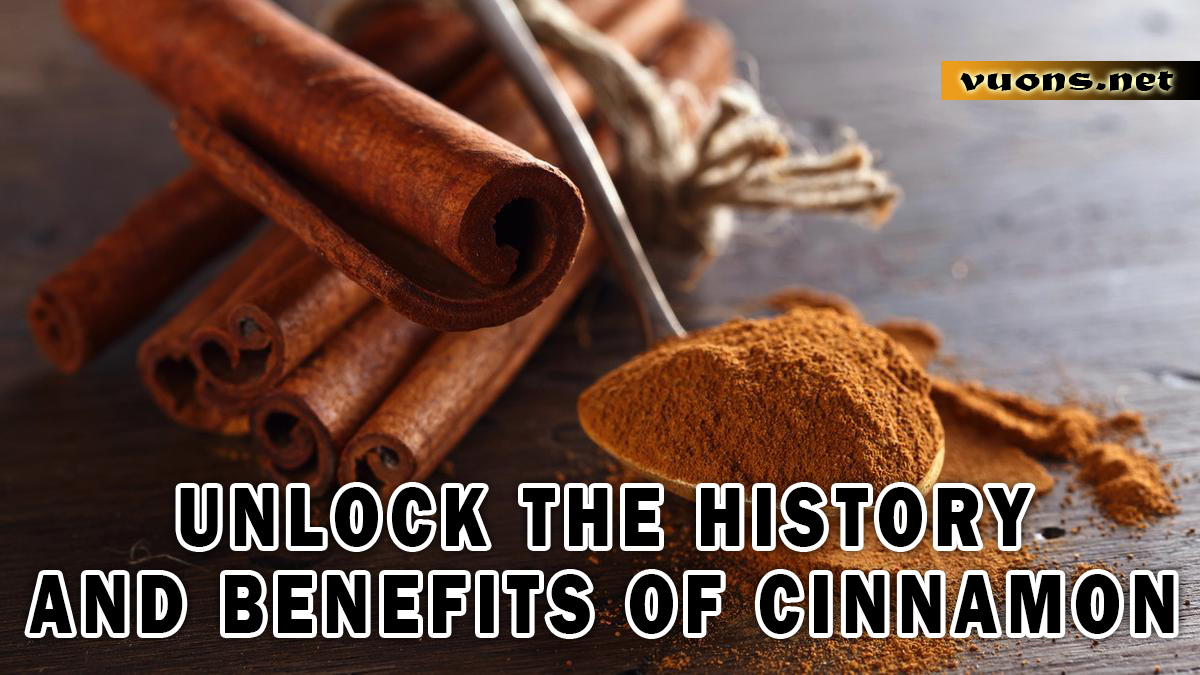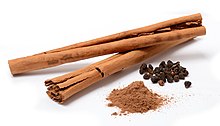UNLOCK THE HISTORY AND BENEFITS OF CINNAMON
Cinnamon’s Journey in History
Cinnamon, a precious spice that has captivated humans since ancient times, has a long history that spans cultures and continents. Its origins can be traced to the tropical forests of South Asia, particularly Sri Lanka, India, and China. However, cinnamon is also known to have been used by ancient Egyptian and Roman civilizations as a spice, medicine, and in religious ceremonies.
Since the 15th century AD, cinnamon has become one of the most valuable trade commodities in the world. Traders from Europe came to Southeast Asia and the Dutch East Indies to collect these spices, including cinnamon, which they then brought back to Europe. Cinnamon became a symbol of wealth, luxury and power, and its influence was felt strongly in the development of global trade at that time.
In Asia, cinnamon is not only used as a kitchen spice but is also valued for its rich properties and health benefits. In traditional Chinese medicine, cinnamon is believed to have thermal properties that can help improve blood circulation and warm the body. In India, cinnamon is used in Ayurvedic medicine to aid digestion and treat respiratory problems.
In addition, cinnamon has an important role in culture and rituals in many societies. For example, in Hindu tradition, cinnamon is used in religious ceremonies to cleanse and purify. In Japan, cinnamon is known as “Japanese cinnamon” and is used in a variety of traditional dishes and drinks.
To this day, cinnamon remains an important ingredient in the global food and beverage industry. From hot tea with the addition of cinnamon to cakes and appetizers enhanced with its distinctive aroma, cinnamon’s presence is timeless. With its rich history and beneficial uses, cinnamon continues to fascinate and inspire the modern world with its priceless rich heritage.
Myths and Facts About the Benefits of Cinnamon
Cinnamon, with its sweet aroma and warm taste, has long been believed to have a variety of health benefits. However, behind its popularity as a spice used in cooking and drinks, there are myths and facts that need to be considered.
Myth: Cinnamon Can Significantly Reduce Weight
Some people believe that consuming cinnamon directly can help you lose weight. Although cinnamon may increase metabolism to some degree, there is no strong scientific evidence to support the claim that cinnamon significantly reduces weight without healthy lifestyle changes.
Fact: Cinnamon Contains Powerful Antioxidants
Cinnamon contains compounds such as polyphenols, which have strong antioxidant properties. These antioxidants help fight cell damage caused by free radicals in the body, which can help reduce the risk of chronic diseases such as heart disease and cancer.
Myth: Cinnamon is good for treating diabetes
Some people believe that cinnamon can replace diabetes medication or help control blood sugar levels significantly. Although some studies suggest that cinnamon may help improve insulin sensitivity, its use in the treatment of diabetes should be subject to medical supervision and should not be used as a substitute for therapy prescribed by a doctor.
Fact: Cinnamon Has Antimicrobial Potential
Cinnamon has long been known for its properties as a natural antimicrobial agent. The compounds in cinnamon may help fight bacteria and fungus, making it used in traditional medicine for respiratory tract infections and certain skin conditions.
In appreciating cinnamon as part of a daily diet, it is important to understand the difference between mythical claims and scientific fact. While cinnamon can add a touch of rich flavor to your dishes, its true health benefits depend on its proper use and balance in a healthy diet and active lifestyle.
Cinnamon in the Culinary World
Cinnamon, with its distinctive warm and sweet aroma, has become an irreplaceable spice in the global culinary world. Known for its refreshing and versatile taste, cinnamon is used in various types of cuisine from various parts of the world.
In Asia, cinnamon is often used in Chinese, Indian and Southeast Asian cuisine. In China, cinnamon is often used in sweet and sour dishes such as sweet chicken and duck dishes. In India, cinnamon is used in various curries and vegetarian dishes to add a distinctive warming flavor. Meanwhile, in Southeast Asia, cinnamon is often used in curries, chicken dishes and traditional desserts.
In Europe, cinnamon is the main spice in bread, cakes and warm drinks such as hot chocolate and mulled wine. In the Netherlands, cinnamon is sometimes used in stamppot (a dish of mashed potatoes with vegetables), giving it an interesting and refreshing taste.
In the United States, cinnamon is often used in toast, oatmeal, and cinnamon rolls to add a distinctive sweet taste. Apart from that, cinnamon is also popular in drinks such as cinnamon lattes and cider.
Not only as a spice, cinnamon is also used in making essential oils, perfumes, and body care products because of its calming aroma and potential benefits for skin health.
With its diverse uses throughout the world, cinnamon not only adds a rich flavor to dishes, but also provides a mouth-watering aroma and valuable health benefits. Exploring the culinary world with cinnamon is an unforgettable experience for food lovers from various cultures.
Cinnamon for Beauty
Cinnamon is not only a fragrant and delicious kitchen spice, but also has extraordinary benefits for beauty care. Thanks to its strong antioxidant properties, cinnamon can help care for skin and hair naturally.
Cinnamon has antibacterial and anti-inflammatory properties that can help reduce acne and skin inflammation. You can mix a little cinnamon powder with honey to make a face mask that can reduce redness and help clean pores. Apart from that, cinnamon can also help brighten the skin by increasing blood flow to the skin, reducing blemishes or dark spots.
To care for hair, cinnamon can be mixed with coconut or almond oil to increase hair growth and provide natural softness to your hair.
Cinnamon is also known to fight signs of aging such as fine lines and wrinkles, thanks to its antioxidant content. You can mix cinnamon with olive or grapeseed oil to make a natural serum that helps maintain skin moisture and smooth fine lines.
Lastly, cinnamon also helps remove blemishes or scars on the skin. Mix cinnamon powder with honey and lemon juice, then apply to the affected area for brighter and more even results.
With a variety of natural beauty benefits, cinnamon is a valuable addition to your skin and hair care regimen.




